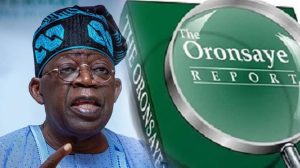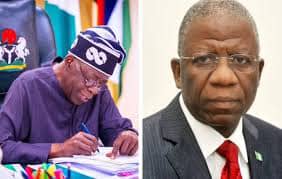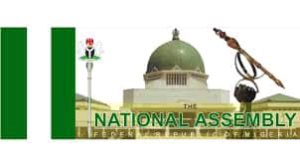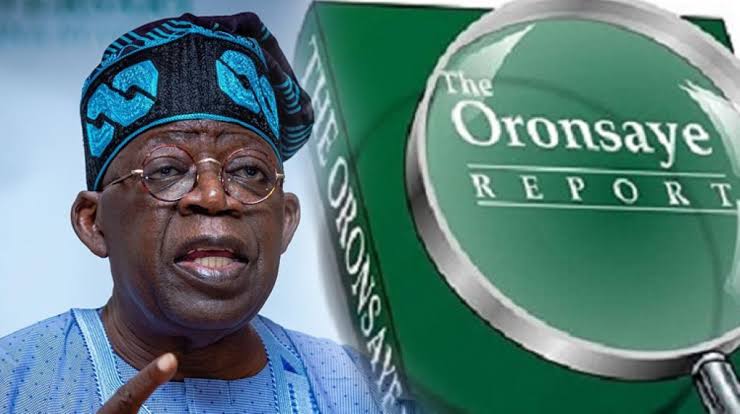WORDS are suddenly inadequate to capture the level of hunger in Nigeria. Cryptic sides of the hunger narratives tend to obscure the debates about our hunger for just food, any food. Water too, once used to fill the stomach, is scare, expensive, and mostly unhealthy, where available.

Hunger for power, the insatiable quest for political power and entitlement to mountains of praises for incompetence is often not in the ordinary hunger calculations.
Deaths from a scramble at a seized-rice auction that Customs organised in Lagos, other deaths, suicides, and the thinning voices of those who are still standing are saddening remainders that we are hungry.
The streets are filled with aggressive, empty-stomached people. Fights erupt quickly over minor issues. More fights could have been possible if the angry masses had enough strength to fight.
People are hungrier than they have been in recent times. Trust government image managers to dredge up publications, majorly from past decades, to make the point that worse hunger had existed. It is another way of saying that we should let the government be. Perhaps, more is on the way.
The arrival of the Steve Oronsaye Report on the scene is one of the wonders of government, not to be confused with governance. There are enough reports on the shelves for all reasons and seasons. A smart government can pull out one for us to chew on. We will certainly fall for it.
How would a Report submitted 12 years ago, multilated in its implementation since, and completely out-dated by today’s challenges, be a solution? The Report is solution only to the government’s hunger for more time to settle down to more nothingness.

It would also keep us very busy asking if the President had a direction, whether legislations for the merging of agencies would ever emerge. A concentration on these can confuse us as we wonder if our headaches were from the endless rumbles in our tummies or another confirmation that Nigeria’s problems were too many for one country.
The hunger is real. The anger is simmering. When those who are impatient in attending to their greed ask Nigerians to be patient, the ring of mockery in their voices is evident. Could patience be the solution to the hunger we face? How much longer should a hungry man wait?
While the falling Naira partly account for the economic woes, it is not the reason for frittering away resources as if wasting resources is the entire purpose of government. The sheer insensitivity is incredible.

The long presidential convoy of imported, expensive, choice automobiles do not reflect the hunger in the land. The lengthening list of those who accompany the President on trips, at home and abroad, is wrong optics for where Nigeria is.
How is the reduction in numbers who travel with the President implemented? Or has the implementation of the directive not commence?
Among the most annoying defences of the peculiar wastes of the Tinubu administration is that the American president travels with huge delegations, including his family. We are not Americans. We do not have their resources.
Unlike America, their delegations are mostly business people. America would not allow the level of hunger we have and do nothing about it. The insecurity that scares our farmers away would not be tolerated in America.
America would not discover a 12-year-old Report as the elixir for eliminating wastes in government. America would not reference Nigerian practices as explanations for its festering failings.
Would America accept deaths during scrambles at a rice auction because it happened in Nigeria? When we make our choices, we cannot blame the consequent, unmitigated disasters on American practices. If we wanted, we could have learnt accountability from America.
Special Adviser to the President on Policy Coordination, Hadiza Bala Usman, keeps up the pretence making unnecessary claims about the importance of the Oronsaye Report “in line with the need to reduce cost of governance and streamline efficiency across the governance value chain”. Efficiency and cost reduction are of unimportance to the Tinubu administration just like the ones before it. To his credit, Tinubu is intentional. He makes no mistakes.
Tinubu, the acclaimed strategist is self-serving. He knows the 800-page Report would take over a year to make rounds of government offices that its implementation would affect. There were 263 agencies and the Report suggested their reduction to 161, by scrapping 38 agencies, merging 52, and reverting 14 to departments in different Ministries. The Goodluck Jonathan administration produced a White Paper on the Report in 2014.
What Tinubu needs is time to inch closer to re-election in 2027. The Report would give him space to rumble through our situations. Soon, we would hold non-implementation of Oronsaye’s Report responsible for the bumbling Tinubu administration.
The currently quoted number of 1316 federal government agencies does not take into consideration agencies that could be created before you finish reading this material. Who would merge them? Would the owners of the fiefdoms watch as they are over-thrown?
In 12 years, the Federal Government added 1,053 agencies, an average of 88 agencies yearly, or almost two agencies monthly. No area of national life has enjoyed legislative attention as creation of agencies. The reasons can be summarised as the opportunities they offer for appointments, legislative committee resources, oversight functions, and jobs for the children of the elect, elite, and select, who have the employment franchise in the agencies and farm them out to their children. Emoluments in the agencies are special since they are for special people.
“Instead of downsizing the public service the Federal Government should ensure that the two houses of the National Assembly are merged while the number of Ministers, Special Advisers, Senior Special Assistants and Special Assistants is significantly reduced,” Femi Falana, a lawyer suggests, as if he does not know it is Tinubu’s turn to enjoy his acquisition of Nigeria.
Tinubu is hungry too. His hunger – for more power to cover his policy directionless and misunderstanding of how things work – is different. His hunger does not recognise our hunger.
By 2027 we would still be discussing Oronsaye, hunger, insecurity, longer presidential convoys, and a hardly working Tinubu who would not need to remind us that it is his turn.
Finally…
GEOMETRIC Power switched on its plant in Osisioma on 26 February 2024 to light up Aba and nine local government areas in Abia State. The big picture is that Geometric will power big projects like Enyimba Economic City which has a power purchase agreement to buy 90MW from it. Congratulations to everyone who benefits from Geometric. We need more of such projects and not blames and boasts about developing Abia State.
HISTORY is necessary to curb excessive excitement that calls to devolve powers to the States elicit. What is different between these calls and the position of Dim Chukwuemeka Odumegwu-Ojukwu at Aburi, Ghana during last ditch efforts to save Nigeria? Failure to implement the Aburi agreement, 57 years ago, that devolved more power to the Regions led to the civil war.
ARE we at a point where the President’s ability to “attract invitations to foreign visits” is an achievement? A presidential visit to Qatar, at a time of excruciating hardships, is a waste. The millions and time the trip cost could have been useful if deployed to ease some of our pains.
IT is so quiet that one hears the silence of the investigations at the Ministry of Humanitarian Affairs and Disaster Management. Tinubu has managed a major disaster well, very well.
Isiguzo is a major commentator on minor issues






